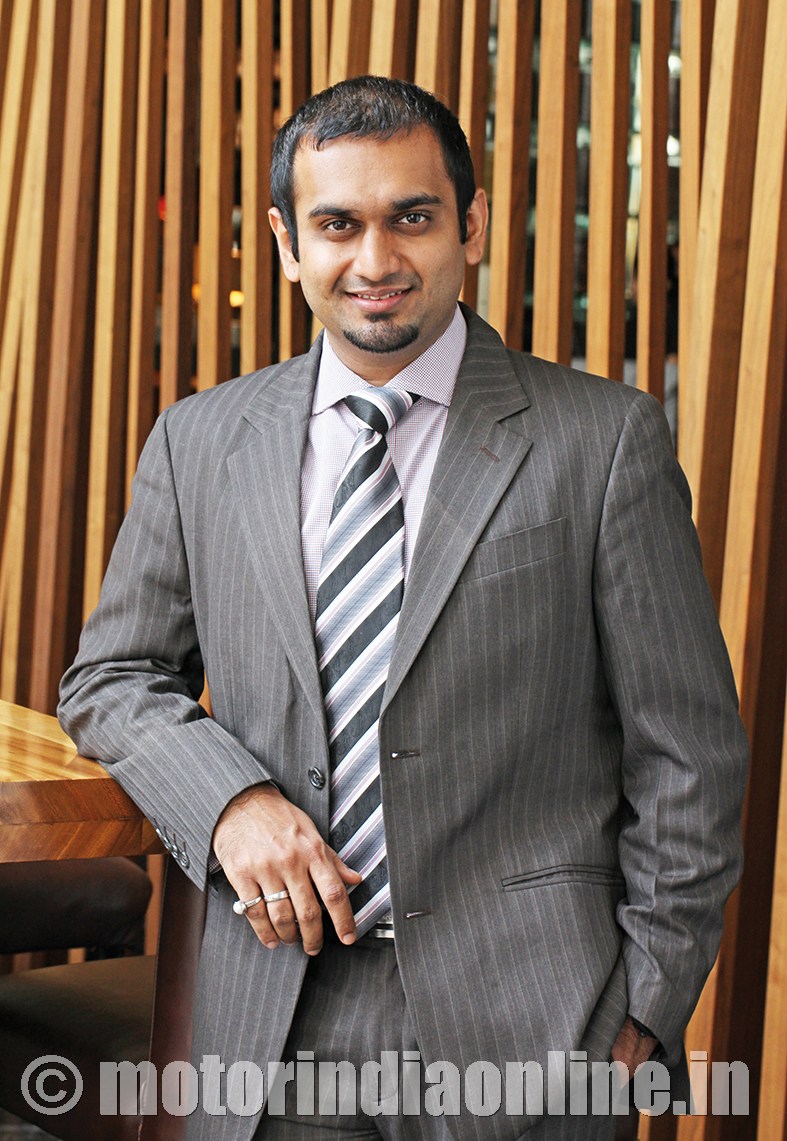Nandan Petrochem Ltd. (NPL) is one of the largest manufacturers of genuine oils, lubricants, greases and specialty oils in India. The range of products include diesel engine oils, passenger car motor oils, motorcycle 4T oil, cutting oils, hydraulic oils, gear oils, grease, etc. Effective April 1, 2017, all new commercial vehicles sold in the country are meeting BS-IV emission norms. Selective catalytic reduction (SCR) is one of the after-treatment technologies used to reduce NOx in tailpipe emission by using aqueous urea solution ‘AdBlue’, generically known as diesel exhaust fluid.

“We have partnered with commercial vehicle OEMs, e.g., Tata Motors, Mahindra, Volvo Eicher, MAN Trucks, etc., for supply of AdBlue to them as they are using SCR technology for NOx reduction. The demand for AdBlue is bound to accelerate in next few years as soon as BS-VI emission norms come into effect from April 1, 2020. The requirement of AdBlue is likely to increase further once passenger cars start using SCR technology for NOx reduction,” informed Mr. Nandan Agrawaal, Managing Director NPL.
NPL has formed a technical joint venture called ‘NPL BlueSky Automotive’, with KRUSE Automotive GmbH of Germany and have pioneered commercial production & supply of AdBlue in India. Their AdBlue plant in Silvassa is patented by KRUSE and certified by the German Automobile Association “VDA” to produce AdBlue meeting ISO 22241 standards. “By making the product available to the OEMs in India right from the initial stages of development of Trucks with SCR technology, NPL BlueSky has played an important role towards combating vehicular emissions. We continue to play an important role to make this product available at important touch points, including fuel stations for the benefit of the end customers. We plan to set up additional multi-locational manufacturing plants across the country so that we are in a state of readiness to meet the increasing demand for AdBlue in next few years once BS-VI emission norms come into effect in April 2020, therefore would be playing a key role to in handling vehicular emission challenge for the automobile industry and contribute towards addressing growing environmental challenge faced by our country,” said Mr. Agrawaal.
Superlative products
With improved machining practices in the manufacturing of engine components, the trend today is to use thinner oils to achieve fuel economy benefits which also help in reducing CO2 emission thus helping the environmental concerns regarding greenhouse gas emission. NPL have developed and are marketing lower viscosity engine oils in SAE 5W-30 & 5W-40 viscosities for petrol engine driven cars meeting API SM/SN performance levels and SAE 10W-40 diesel engine oils meeting API CI-4/CI-4 Plus/CJ-4 levels for commercial vehicles. “The synthetic lubricant technology used by us ensures better low temperature characteristics hence protecting the engines during start-up, reduced oil consumption because of lower evaporation losses, longer oil drain intervals because of better oxidation stability and fuel economy benefits due to lower frictional characteristics, besides those derived from use of lower viscosities. We are also planning to introduce SAE 0W-40/0W-30 for passenger car segment and SAE 5W-40 for commercial vehicle segment”, he added.
Long drain life vs. volumes
A critical feature of a lubricant is the time required before it needs to be changed, this feature known as drain life is gained through the quality of the lubricant. The improvement in the drain life is expected to contribute to a slower growth of replacement demand in the future. “The above-mentioned lubricants developed & marketed by us have proven field performance in terms of increased drain interval period, lower oil consumption, reduced wear engine wear hence lower maintenance cost and maintaining engine output for long due to lower oil ageing characteristics. Obviously, longer oil drain interval lubricants can impact the overall lubricant demand in the market, however with more vehicle users shifting for longer drain oils and synthetic lubricants, there would be more demand for higher performance lubricants which would have a positive impact on the overall revenues thus offsetting impact coming from lower demands from volume perspective,” informed the MD.
Owing to their growing efforts over the years, Mr. Agrawaal added: “Today our split amongst various segments within automotive lubricants for commercial vehicles would be of 36 per cent, passenger cars around 22 per cent, 2-wheelers: 23 per cent, tractors around 7 per cent and construction vehicles about 9 per cent.”
Plant capacities & brand recall
NPL has three ISO 9001 certified manufacturing plants located at Taloja near Mumbai and Silvassa with total capacity of 60,500 KL per year. “We also have ISO certified grease manufacturing plant at Taloja with a capacity of 6000 MT per year. Besides these lubricating oil & grease plants, we also have two plants at Silvassa and Kolkata for manufacturing AdBlue. We plan to add more plants for AdBlue in future as its demand grows with BS-VI emission norms coming in effect from April 2020,” he revealed.
Considering that their VELVEX brand of lubricants in India is not very old, the growth in its reach & coverage as well as market response has been very good. It is now available across the country, except in couple of states in the East and the N-E States. “We have aggressive plans for increasing our market share and brand recall in the next three years to become a significant player in the branded segments in the India lubricants market. Our distributors and retail network are spread across the country which is fully supported by our very competent team of sales & technical staff. To promote our ‘VELVEX’ brand, we regularly conduct customers & influencer engagement activities such as mechanic contact program, retailer storming, nukkad meet, canopy campaign, mechanic meet, festive get-together, participation in industry conferences and exhibitions. Recently we have launched a Mechanic Loyalty Program called VELVEX RISHTA PROGRAM which is an SMS and Call Center based program for the benefit of the mechanics,” concluded Mr. Agrawaal.